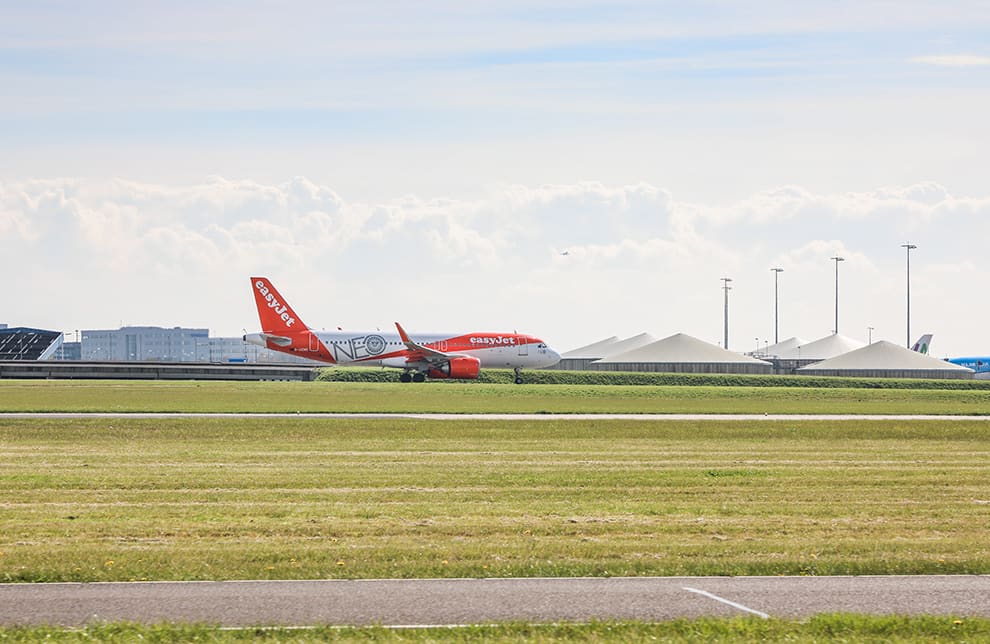The maximum number of flights at Schiphol is to remain unchanged in 2024. Last year, the government announced that it wanted the maximum number of flights at Schiphol to go down from 500,000 to 460,000. On Wednesday 5 April, the judge in the summary proceedings at the Noord-Holland court ruled that the Dutch government had not followed the correct procedure to cut the number of flights. Despite this ruling, Schiphol will continue to implement measures to make aviation quieter and cleaner.

Published on: 5 April 2023
Case brought to court by aviation sector
KLM and many other airlines brought the case to court after the government stated its intention to introduce a so-called Preliminary Scheme to (temporarily) reduce the number of flight movements. You can read more about what this scheme entails here. This morning, the court blocked the proposed scheme. According to the judge, the government did not follow the correct procedure and airlines were insufficiently consulted.
Schiphol's reaction
Schiphol wanted, first and foremost, clarity for local residents and for the aviation sector. That was the key message of our argument in court on 21 March 2023. Schiphol believed that the proposed scheme could provide that clarity as an intermediate step towards a new system. The court ruled that the preliminary scheme was not the correct instrument and that the current number of approximately 483,000 flight movements must be maintained. The court ruling thus provides clarity and means that anticipatory enforcement will continue to apply. Schiphol will continue to focus on decisions made to make aviation quieter, cleaner and better.
New system in line with Climate Agreement
Schiphol does not want the focus to be on the number of flight movements, but rather on a new and legally enshrined system in which environmental limits and rules lead to the reduction of noise nuisance and emissions caused by aviation. We'd like to implement such a system as soon as possible, and certainly no later than 2025-2026. The Paris Climate Agreement should be leading in the drawing up of this legislation, so that the aviation sector contributes to global climate goals by, for example, flying with quieter and cleaner planes, using sustainably produced fuel. That's how we will achieve our goal of lower impact aviation. Everyone, from neighbours and employees to administrators and travellers, would benefit from that.